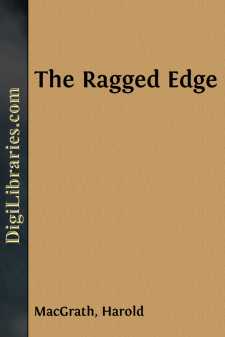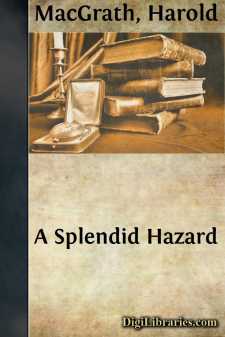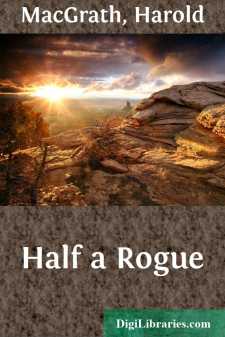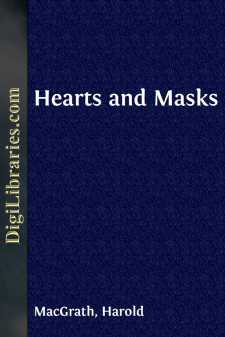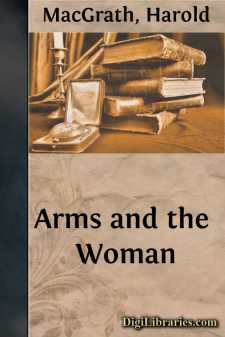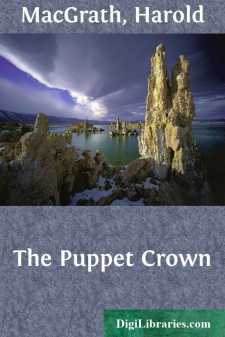Categories
- Antiques & Collectibles 13
- Architecture 36
- Art 48
- Bibles 22
- Biography & Autobiography 813
- Body, Mind & Spirit 142
- Business & Economics 28
- Children's Books 17
- Children's Fiction 14
- Computers 4
- Cooking 94
- Crafts & Hobbies 4
- Drama 346
- Education 46
- Family & Relationships 57
- Fiction 11829
- Games 19
- Gardening 17
- Health & Fitness 34
- History 1377
- House & Home 1
- Humor 147
- Juvenile Fiction 1873
- Juvenile Nonfiction 202
- Language Arts & Disciplines 88
- Law 16
- Literary Collections 686
- Literary Criticism 179
- Mathematics 13
- Medical 41
- Music 40
- Nature 179
- Non-Classifiable 1768
- Performing Arts 7
- Periodicals 1453
- Philosophy 64
- Photography 2
- Poetry 896
- Political Science 203
- Psychology 42
- Reference 154
- Religion 513
- Science 126
- Self-Help 84
- Social Science 81
- Sports & Recreation 34
- Study Aids 3
- Technology & Engineering 59
- Transportation 23
- Travel 463
- True Crime 29
Parrot & Co.
by: Harold MacGrath
Description:
Excerpt
I
It began somewhere in the middle of the world, between London which is the beginning and New York which is the end, where all things are east of the one and west of the other. To be precise, a forlorn landing on the west bank of the muddy turbulent Irrawaddy, remembered by man only so often as it was necessary for the flotilla boat to call for paddy, a visiting commissioner anxious to get away, or a family homeward-bound. Somewhere in the northeast was Mandalay, but lately known in romance, verse and song; somewhere in the southeast lay Prome, known only in guide-books and time-tables; and farther south, Rangoon, sister to Singapore, the half-way house of the derelicts of the world. On the east side of the river, over there, was a semblance of civilization. That is to say, men wore white linen, avoided murder, and frequently paid their gambling debts. But on this west side stood wilderness, not the kind one reads about as being eventually conquered by white men; no, the real grim desolation, where the ax cuts but leaves no blaze, where the pioneer disappears and few or none follow. The pioneer has always been a successful pugilist, but in this part of Burma fate, out of pure admiration for the pygmy's gameness, decided to call the battle a draw. It was not the wilderness of the desert, of the jungle; rather the tragic hopeless state of a settlement that neither progressed, retarded, nor stood still.
Between the landing and the settlement itself there stretched a winding road, arid and treeless, perhaps two miles in length. It announced definitely that its end was futility. All this day long heavy bullock-carts had rumbled over it, rumbled toward the landing and rattled emptily back to the settlement. The dust hung like a fog above the road, not only for this day, but for all days between the big rains. Each night, however, the cold heavy dews drew it down, cooling but never congealing it. From under the first footfall the next day it rose again. When the gods, or the elements, or Providence, arranged the world as a fit habitation for man, India and Burma were made the dust-bins. And as water finds its levels, so will dust, earthly and human, the quick and the dead.
It was after five in the afternoon. The sun was sinking, hazily but swiftly; ribbons of scarlet, ribbons of rose, ribbons of violet, lay one upon the other. The sun possessed no definite circle; a great blinding radiance like metal pouring from the mouth of a blast-furnace. Along the road walked two men, phantom-like. One saw their heads dimly and still more dimly their bodies to the knees; of legs, there was nothing visible. Occasionally they stepped aside to permit some bullock-cart to pass. One of them swore, not with any evidence of temper, not viciously, but in a kind of mechanical protest, which, from long usage, had become a habit. He directed these epithets never at animate things, never at anything he could by mental or physical contest overcome. He swore at the dust, at the heat, at the wind, at the sun....



